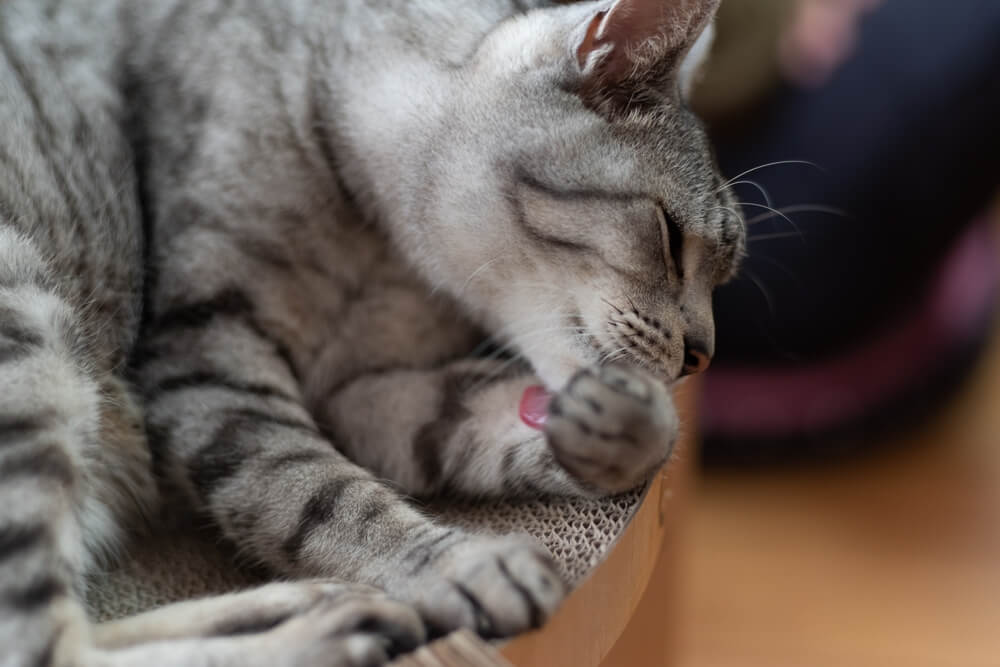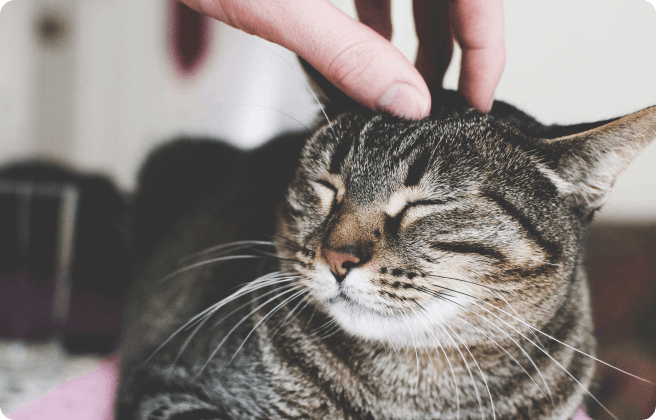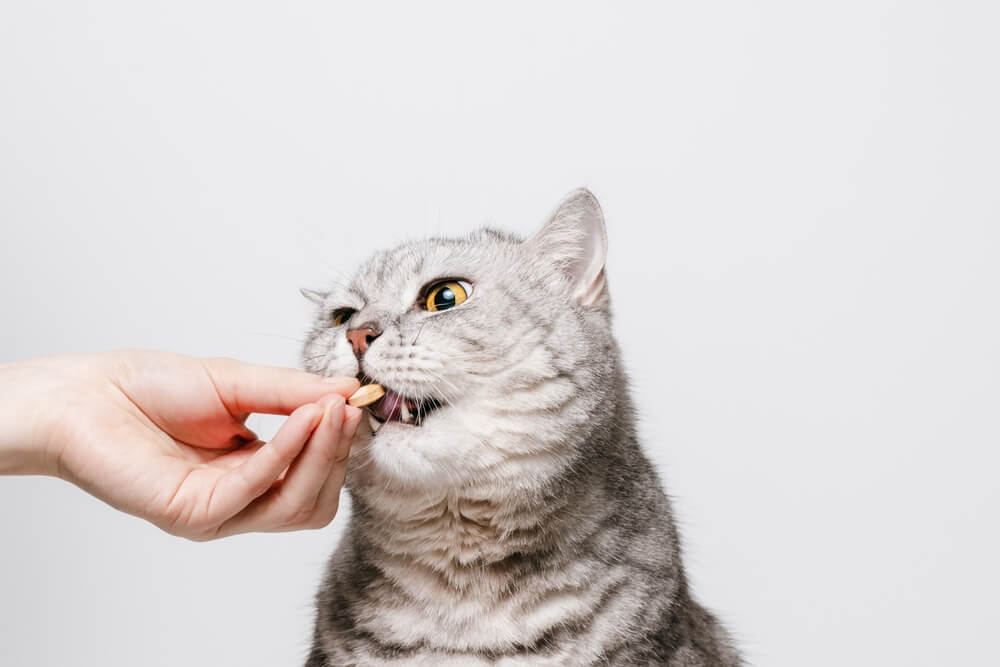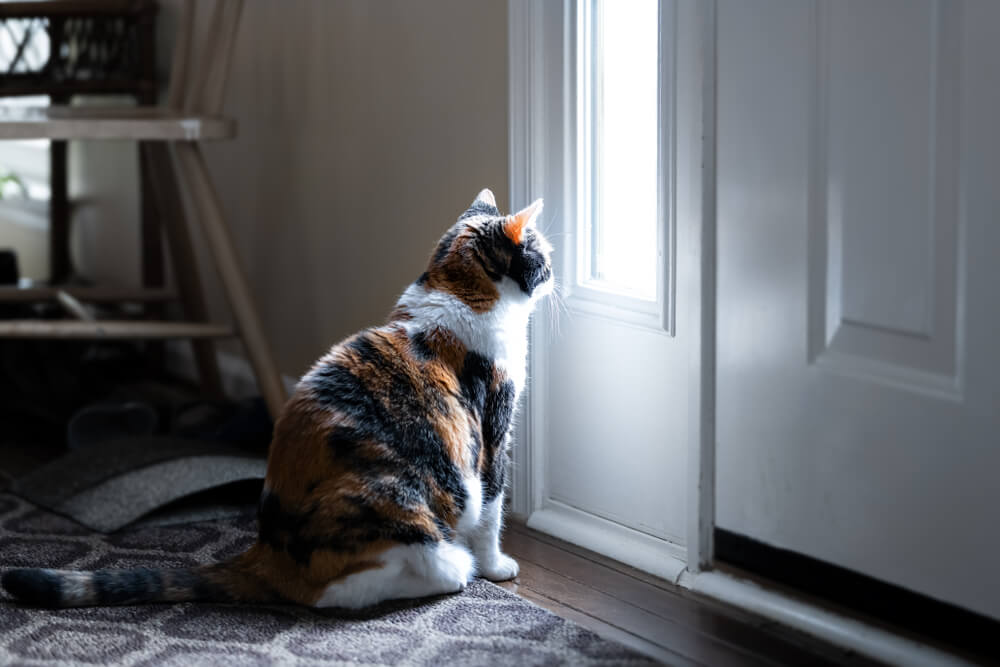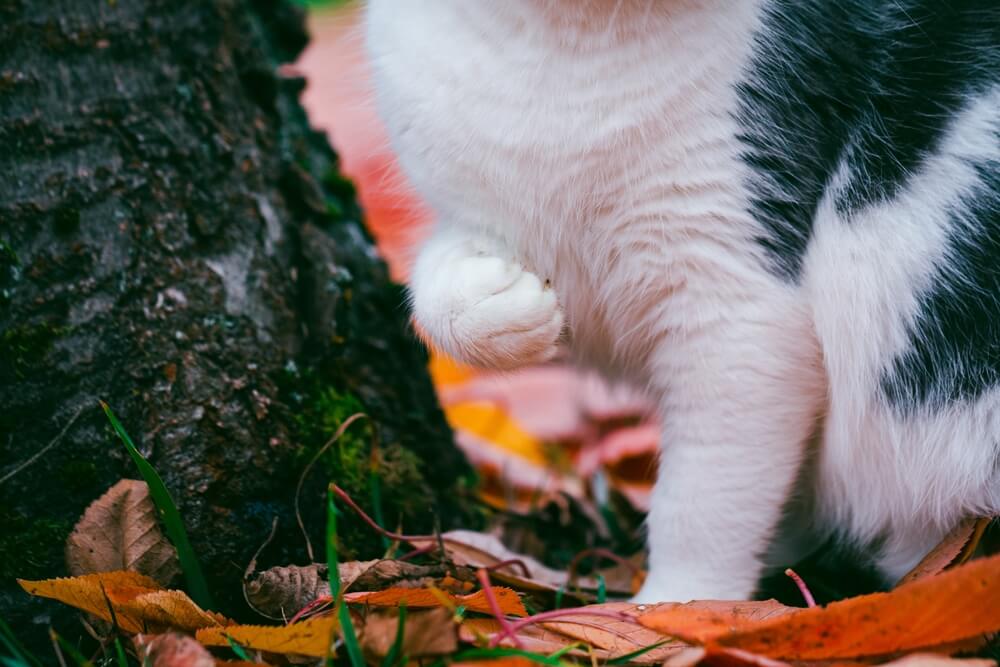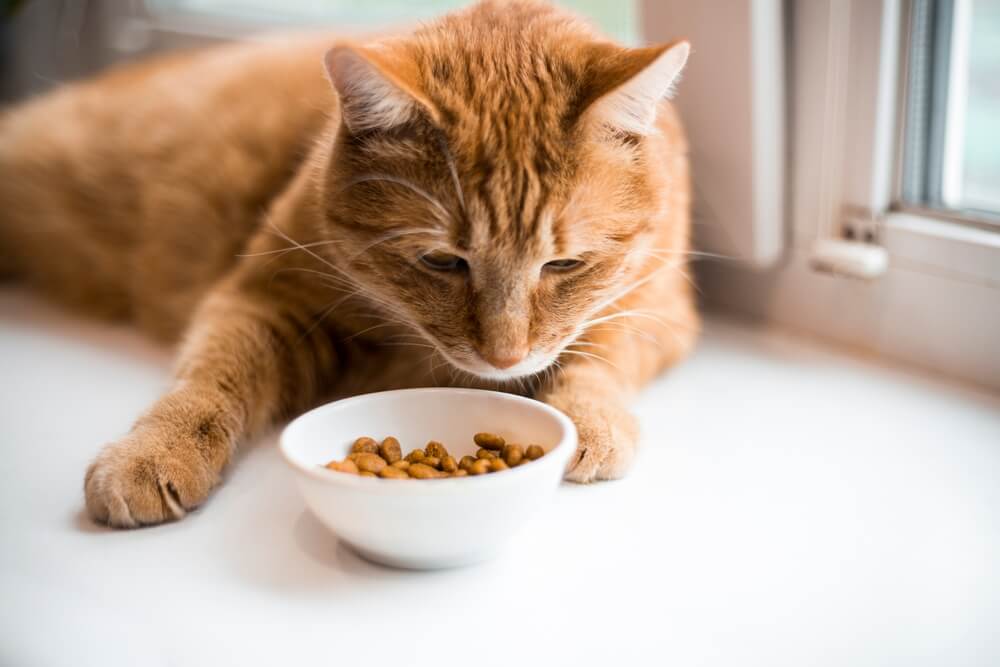
Choosing the right diet is one of the most important parts of being a responsible cat parent. A well-balanced diet does more than just fill your cat’s bowl — it supports their immune system, energy levels, coat health, and overall wellbeing.
If you’re feeding a commercial cat food approved by AAFCO, you can generally trust that your cat is getting the nutrients they need. But understanding the why behind those nutrients is still useful, especially if you’re preparing homemade meals or want to feel more confident reading ingredient labels.
To help, we’ve broken down the six most important nutrients your cat needs and why each one plays a vital role in keeping your four-legged friend healthy, happy, and thriving.
There are AAFCO’s nutrient profiles to help us ensure our cats get the minimum requirements but there are also six important nutrients which are crucial to a cat’s health and which we should be looking to include in our cats’ diets.
Protein
Protein is a cornerstone of feline nutrition. Cats are obligate carnivores, meaning their bodies are designed to thrive on animal-based protein. It supports muscle growth, tissue repair, and energy production. Animal proteins (like chicken, turkey, and fish) provide the full range of essential amino acids cats need, including taurine, which we’ll get to shortly.
Fat
Fat is a concentrated source of energy and helps your cat absorb fat-soluble vitamins (A, D, E, and K). It also supports healthy skin and a glossy coat. Key fatty acids like arachidonic acid, found in animal fats, are essential for cats as they can’t produce them on their own.
Water
Water keeps a cat’s kidneys healthy, supports digestion, and helps regulate body temperature. Cats are hunters and are used to acquiring most of their water through diet. Therefore, fresh or wet food helps to keep this source of hydration. If you feed your cat a dry diet, it might be a little trickier to keep them hydrated, as cats aren’t great at drinking to account for this and may become dehydrated.
Vitamins
Vitamins support everything from immune health to vision and metabolism. Here are some of the essnetial vitamins the AAFCO requires cat food to contain:
- Vitamin A: crucial for vision and immune function.
- Vitamin D: helps regulate calcium and supports bone health.
- Vitamin E: protects cells from the damage caused by free radicals.
- Vitamin K: for normal blood clotting.
- B vitamins: essential for nervous system health and energy metabolism.
Minerals
Minerals are another type of micronutrient, but unlike vitamins, they don’t contain carbon. Essential minerals like calcium, phosphorus, magnesium, and potassium play roles in bone health, nerve function, hydration, and more. A balanced mineral profile is key to avoiding deficiencies or excesses that can harm your cat’s health.
Taurine
Taurine is an amino acid that’s absolutely critical for cats. Unlike dogs, cats can’t make taurine themselves — they must get it from their diet. It supports heart health, vision, digestion, and reproductive function. A deficiency in taurine can lead to serious health issues, including heart disease and blindness.
What About Other Nutrients?
Cats also require:
- Amino acids (like arginine and methionine) to support growth and metabolism.
- Arachidonic acid (as mentioned above) for healthy skin and inflammation regulation.
- Carbohydrates: While not essential, small amounts can provide energy, but cats don’t require them the way humans or dogs do.
Understanding nutrients is one thing, but knowing how to spot them on a cat food label is just as important. Here are a few key things to look for when choosing the right food for your feline:
- AAFCO-approved: Look for a statement like “formulated to meet the nutritional levels established by the AAFCO” to ensure the food meets basic standards for your cat’s life stage.
- Named animal protein as the first ingredient: Ingredients like “chicken,” “turkey,” or “salmon” are better indicators of quality than vague terms like “meat” or “poultry.”
- No vague or anonymous ingredients: Avoid foods that list low-quality ingredients like “meat by-product meal”, “animal fat”, or artificially preserved ingredients.
- Taurine is clearly listed: Taurine is so essential for cats that most commercial foods include it, but it’s always worth double-checking that it’s named on the label.
We uphold the highest editorial standards when creating the authoritative content pet parents rely on and trust.
Every piece of clinical content on the Cat Food Advisor is reviewed by our certified Veterinary Advisory Board, which consists of licensed veterinarians and medically certified specialists.
Our reviews are completely independent; we are not paid by any pet food company to promote their products favorably. We do not accept money, gifts, samples or other incentives in exchange for special consideration. For more information see our Disclaimer & Disclosure page.




